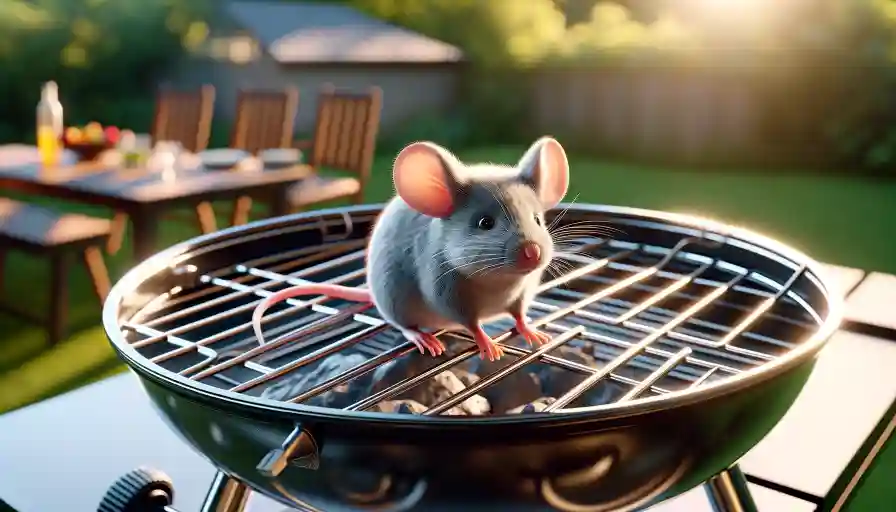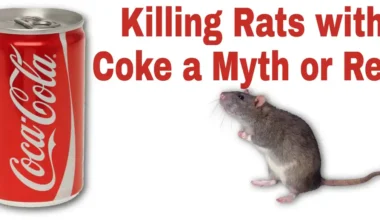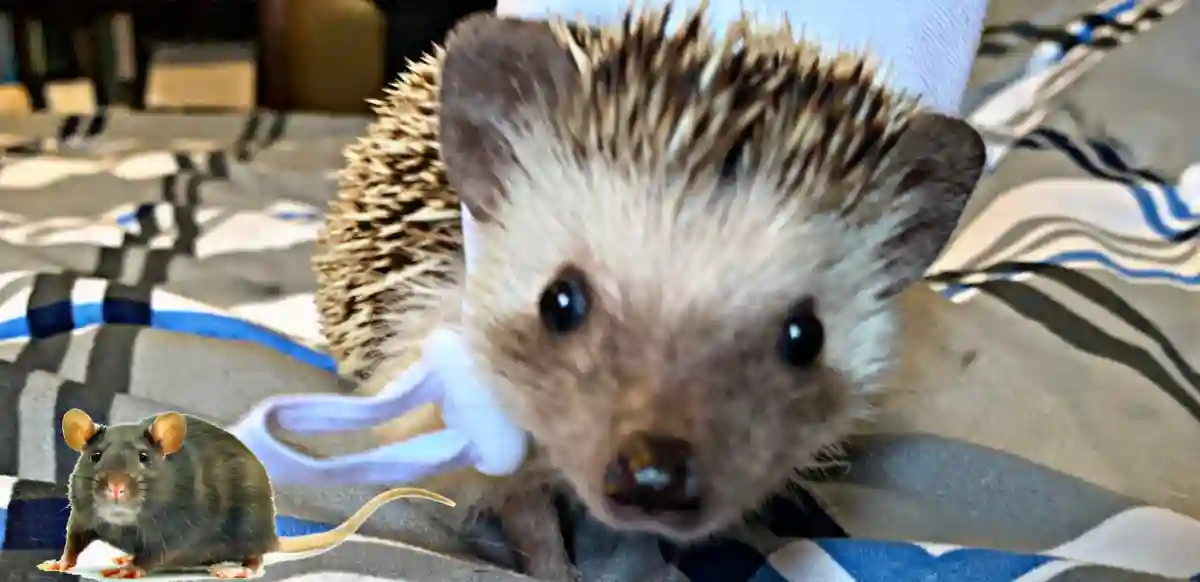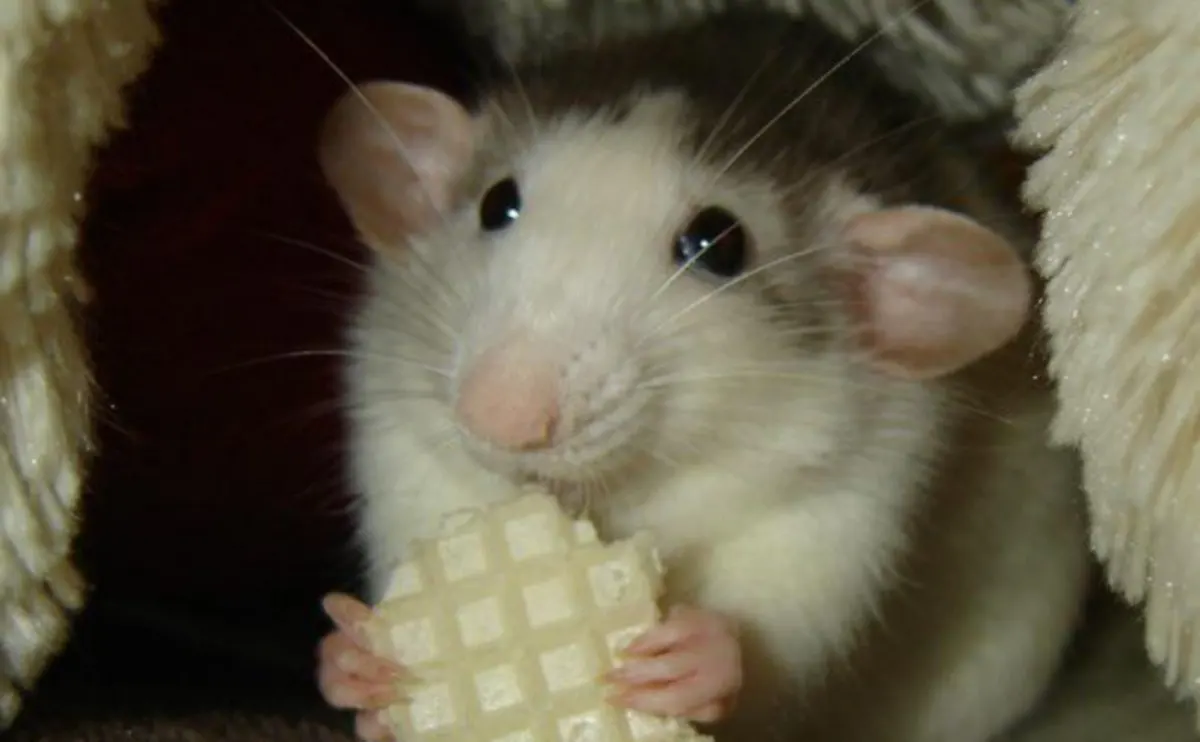Summer is just around the corner, so it’s the start of the grilling season. It’s a time for both experienced grillers and beginners to enjoy outdoor cooking with friends and family. However, mice might be attracted to your barbecue grill for various reasons. But the bigger concern is whether it is safe to use grill after mice or not.
If you suspect a mouse infestation, look for signs such as droppings, chewed wires and cords, and mouse nests made of chewed materials. Mouse droppings and urine are hazardous and can transmit diseases.
To either rid your grill of mice or prevent them, we’ve gathered methods to help you enjoy your grill throughout the summer.
Safe to Use Grill After Mice?

It isn’t safe to use grill after mice without cleaning it. Mice can carry various diseases and leave behind droppings and urine. Before using the grill, thoroughly clean and disinfect it. Make sure to remove any droppings, and then scrub the entire grill with a disinfectant.
Pay special attention to the grates, as this is where the food is cooked. After cleaning, heating the grill to a high temperature for some time can help kill any remaining bacteria or viruses.
How to Clean Grill After Mice
You might look at this and think, “Oh my God, that’s gross. I never want to cook on this again.” But cleaning it is easier than you think. Once you’ve done it a few times, you’ll get the hang of it.
1. Look for signs of mice
First, check under the griddle for any signs of mice, but it looks clear. Then, take your scraper and carefully remove all the droppings, especially from the edges and sides. They stick to the scraper instead of going into the grease drain.
2. Wipe off the mice droppings
Next, wipe the droppings onto a paper towel, trying not to break them apart. Some leftovers go to the grease drain. Don’t mind scraping them onto the ground since they’re already there.
3. Clean the grease trap
After that, clean your grease trap, making sure to remove most of the droppings. You don’t want any left on the griddle. Now it’s ready to be heated up. If you notice a few missed droppings, make sure to remove them before the griddle gets hot.
4. Heat up the grill
You don’t have to clean it with soap or water. Just heat it up really hot to kill any germs. This is important to do before cooking, like when you make your pork loin sandwich. Heating the griddle takes extra time, but it’s necessary. After about 10 minutes, check the temperature. You can still give the griddle one more scrape to ensure it’s clean. Focus on the edges.
5. Coat the griddle with oil
Next, coat the griddle with oil for protection. It will be very hot, so you have to be careful. This helps prepare it for cooking. You should let it burn in for another 15 minutes while you do some prep work.
Why Do Mice Like Your BBQ Grill?
Mice are drawn to quiet, warm areas near food sources, making your grill an ideal shelter, especially in winter when it’s unused and undisturbed for extended periods. This makes it a perfect nesting spot to escape the cold.
However, mice can be an issue even during grilling season if precautions are not taken. They prefer grills on your patio as these offer protection from predators and might be attracted to the scent of leftover food or grease. Therefore, it’s crucial to proactively deter mice not only in summer but also when storing your grill in winter.
What to Do After Mice on Grill

Here are six ways to keep mice away from your grill:
1. Clean Your Grill Regularly
One of the most effective methods to deter mice is by cleaning your grill after each use. Regular cleaning during grilling season removes food scraps and grease that attract mice. Also, ensure it’s clean before storing it for winter. Use a grill brush or scraper to clear debris and wipe the grates with a damp cloth to remove any food residue.
2. Store Your Grill Correctly
Keep your grill in a dry place like a garage or shed to avoid rodent infestation. It should be off the ground and covered with a tarp or grill cover. Avoid storing it near areas like compost bins, trash cans, or woodpiles where mice can easily access it.
3. Use a Grill Cover
A good grill cover, made from sturdy materials such as vinyl or polyester, keeps your grill safe from the elements and rodents. Ensure the cover fits tightly, leaving no easy entry points for mice.
4. Apply Stay Away Rodent Botanical Repellent
This plant-based repellent from EarthKind® helps keep mice away. Made from essential oils and other botanical ingredients, it naturally repels mice. Place it near potential entry points, including around the grill and its storage area during the off-season.
5. Try Peppermint Oil
Peppermint oil is a natural mouse deterrent. Its strong smell repels rodents. Soak cotton balls in peppermint oil and place them around your grill. Alternatively, mix the oil with water and spray around the grill’s perimeter. Reapply frequently as the scent fades quickly.
6. Seal Any Openings
Mice can squeeze through small openings. Inspect your grill for any gaps or holes and seal them with materials such as steel wool or wire mesh. This prevents mice from finding a way into your grill.
7. Seal Holes with Steel Wool
Steel wool is a useful tool for keeping mice away from your grill, as they cannot chew through it. Mice have strong teeth capable of gnawing through wood, plastic, and some metals, but steel wool is too tough for them.
To use steel wool as a deterrent, place it in any gaps or openings on your grill where pests might enter. For instance, cover vents with steel wool to block entry, or stuff it into any crevices to prevent access.
So, that’s all guys. Most importantly, we explained that it is not safe to use grill after mice.
Read also: Best Food to Catch a Smart Mice





